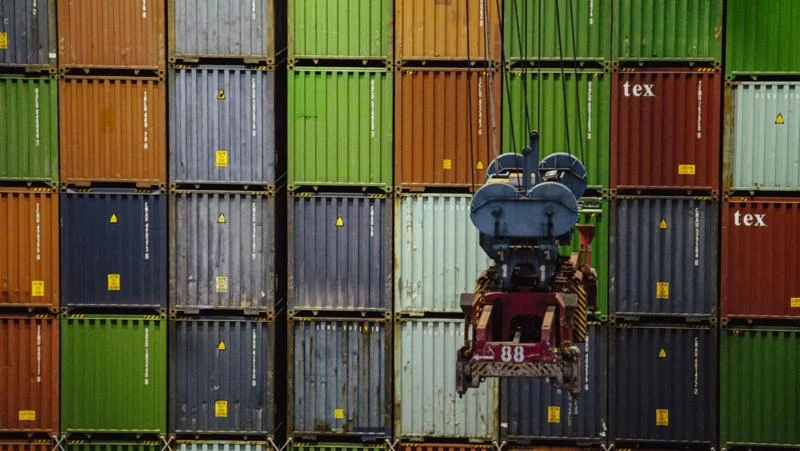The Trump administration on Monday asked an appeals court to let the president’s tariffs remain in place while legal challenges continue, saying that lifting them would “catastrophically harm our economy.”
The administration appealed after a three-judge panel of the U.S. Court of International Trade unanimously ruled that Congress did not give the president tariff authority under the International Emergency Economic Powers Act of 1977. The Court of International Trade gave Trump 10 days to unwind all the tariffs he issued under IEEPA. The appeals court granted the administration’s request for a stay, putting the Court of International Trade ruling on hold while the appeal continues.
The U.S. government wants to stop the Court of International Trade ruling while the appeal continues, according to a brief filed Monday by federal attorneys.
“The result is an illegal injunction that improperly usurps political choices by the political branches and arrogates to the Judiciary a central role in managing foreign negotiations, the national economy, and national security,” they wrote. “The injunction unilaterally diminishes America’s bargaining position during sensitive trade negotiations, encouraging other countries to hold our Nation hostage and catastrophically harm our economy.”
The Department of Justice’s Appellate Staff Civil Division attorneys said that if the appeals court rules against the administration, they plan to appeal to the U.S. Supreme Court.
“If the Court denies a stay, it should extend its administrative stay for seven days to let the government seek relief from the Supreme Court,” the government attorneys wrote.
The U.S. economy hangs in the balance, according to the DOJ.
“Upending the existing tariffs at this critical juncture on the theory that the President can hypothetically impose other (less effective) tariffs later, under other authorities, also does nothing to solve the timing problem: The emergencies are looming now, negotiations are proceeding now, and the CIT’s injunction threatens them,” they wrote.
A group of states and small businesses that challenged Trump’s tariff authority previously asked an appeals court to dump Trump’s “Liberation Day” tariffs while legal challenges play out.
The businesses, represented by the Liberty Justice Center, said their livelihood is on the line. The businesses included VOS Selections, a New York-based wine and spirit importer.
“An eventual refund is of little comfort to the VOS Plaintiffs, who face imminent irreparable harm, including existential threats of bankruptcy and permanent damage to their business, whether by reputational damage, loss of goodwill, or harm to relationships with suppliers and customers,” Liberty Justice Center attorneys wrote. “What good is a refund of the tariffs paid to a business that is bankrupt and no longer exists?”
The Liberty Justice Center attorneys noted: “Small businesses are particularly vulnerable, as they are less equipped to absorb these extra costs. Close to two-thirds of small businesses have reported that tariffs and other trade issues would hurt their businesses.”
The states, led by Oregon’s attorney general, presented a similar argument.
“Once they pass the tariff costs on to the States through higher prices, the States likely cannot recover those costs even if the vendors ultimately receive refunds,” the attorneys general wrote. “That is not a trivial sum: The plaintiff States’ annual losses are conservatively estimated at $1.6 billion per year.”
Economists, businesses and some publicly traded companies have warned that tariffs could raise prices on a wide range of consumer products.
Trump has said he wants to use tariffs to restore manufacturing jobs lost to lower-wage countries in decades past, shift the tax burden away from U.S. families, and pay down the national debt.
A tariff is a tax on imported goods paid by the person or company that imports the goods. The importer can absorb the cost of the tariffs or try to pass the cost on to consumers through higher prices.






